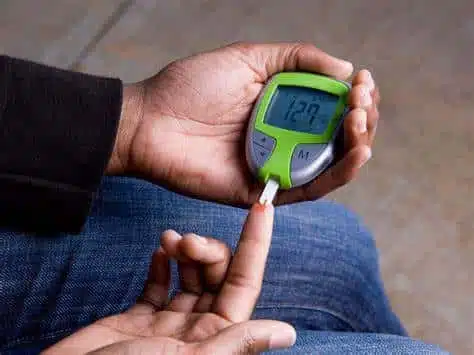Weed In Treating Diabetes
One of the ways that cannabis may help is by reducing inflammation in the body. Chronic inflammation is a key factor in the development of insulin resistance, which is a hallmark of type 2 diabetes. By reducing inflammation, cannabis may help to improve insulin sensitivity and regulate blood sugar levels.
Another way that cannabis may help is by reducing neuropathic pain. Neuropathy is a common complication of diabetes that can cause tingling, numbness, and pain in the hands and feet. Cannabis has been shown to be effective at reducing neuropathic pain, which can improve quality of life.
While cannabis may offer some benefits for those with diabetes, it is important to note that it is not a cure for the condition. It is a complex disease that requires a multifaceted approach to treatment, including lifestyle changes, medication, and regular monitoring of blood sugar levels.
As the legalization of marijuana continues to spread across the United States and Canada, more and more people are turning to cannabis for its medicinal properties. One area where cannabis shows promise is in the treatment of diabetes. In this article, we’ll explore different subtopics related to weed in treating diabetes.
1. The Endocannabinoid System and Diabetes
The endocannabinoid system (ECS) is a complex network of receptors and neurotransmitters that plays a role in regulating a wide range of physiological processes, including appetite, pain, and inflammation. Recent research has shown that the ECS may also play a role in the development and progression of diabetes. By targeting the ECS with cannabis, it may be possible to regulate blood sugar levels and improve insulin sensitivity.
2. THC vs. CBD for Diabetes
When it comes to treating diabetes with cannabis, there are two main compounds to consider: THC and CBD. THC is the psychoactive compound in cannabis that produces the “high” associated with marijuana use. CBD, on the other hand, is non-psychoactive and has been shown to have a range of therapeutic benefits. While both THC and CBD show promise in treating diabetes, research suggests that CBD may be more effective at regulating blood sugar levels.
3. The Benefits of Smoking Weed for Diabetes
Smoking weed is one of the most common ways to consume cannabis, but is it an effective way to treat it? While smoking weed may not be the best option for everyone, it does offer some potential benefits for those with diabetes. For example, smoking weed may help to reduce inflammation and improve insulin sensitivity.
4. The Benefits of Edibles for Diabetes
Edibles are another popular way to consume cannabis, and they offer some unique benefits for those with diabetes. For example, edibles provide a longer-lasting effect than smoking, which can be helpful for regulating blood sugar levels throughout the day. Additionally, edibles can be made with low-sugar ingredients, making them a healthier option for those with diabetes.
5. The Benefits of Tinctures for Diabetes
Tinctures are a liquid form of cannabis that is typically taken sublingually (under the tongue). Like edibles, tinctures offer a longer-lasting effect than smoking, but they are also more discreet and easier to dose. For those with diabetes, tinctures may be a good option for regulating blood sugar levels throughout the day.
6. The Benefits of Topicals for Diabetes
Topicals are cannabis-infused creams, lotions, and balms that are applied directly to the skin. While topicals are not typically used to treat it directly, they can be helpful for managing some of the symptoms associated with the condition. For example, topicals may help to reduce inflammation and relieve pain.
7. The Risks of Smoking Weed for Diabetes
While smoking weed may offer some benefits for those with diabetes, it is not without its risks. For example, smoking can cause lung damage and may exacerbate respiratory issues. Additionally, smoking can increase heart rate and blood pressure, which can be dangerous for those with diabetes.
8. The Risks of Edibles for Diabetes
While edibles may be a healthier option for those with diabetes, they are not without their risks. For example, edibles can be difficult to dose accurately, which can lead to overconsumption and a range of negative side effects. Additionally, some edibles may be high in sugar, which can be problematic for those.
9. The Risks of Tinctures
Tinctures are generally considered to be safe for those with diabetes, but they are not without their risks. For example, tinctures can be difficult to dose accurately, which can lead to overconsumption and negative side effects. Additionally, some tinctures may contain high levels of alcohol, which can be problematic for those with diabetes.
10. The Risks of Topicals
Topicals are generally considered to be safe for those with diabetes, but they are not without their risks. For example, some topicals may contain ingredients that can irritate the skin or cause an allergic reaction. Additionally, some topicals may contain high levels of THC, which can cause psychoactive effects.
In conclusion, cannabis shows promise as a treatment, but it is important to consider the risks and benefits of each method of consumption. Whether you choose to smoke, eat, or apply cannabis topically, it is important to work with a healthcare professional to develop a treatment plan that is safe and effective for you. And if you’re looking for a reliable online dispensary to purchase your cannabis products, be sure to check out West Coast Releaf Online Dispensary for a wide selection of concentrates, edibles, vapes, and more.
Conclusion
If you are interested in buying weed online and THC products, check out West Coast Releaf online weed dispensary and shop for your weed online and cannabis products at westcoastreleaf.co!













